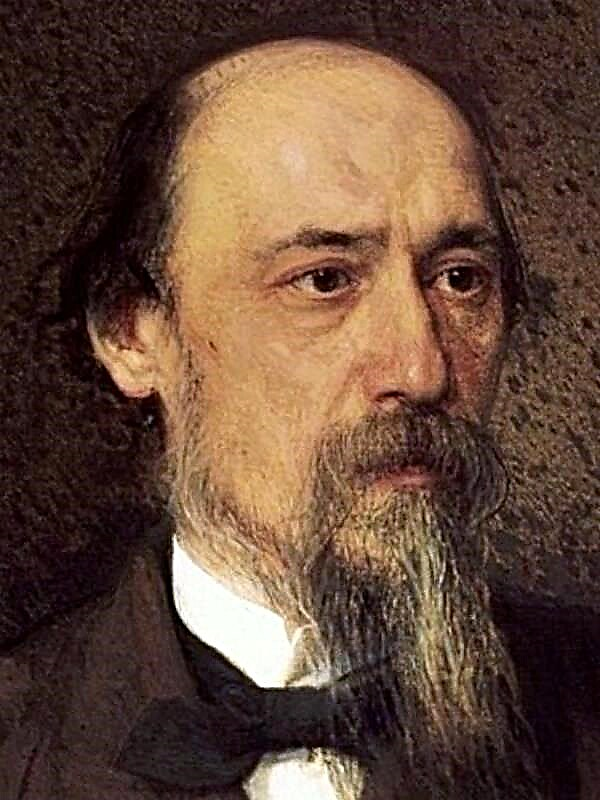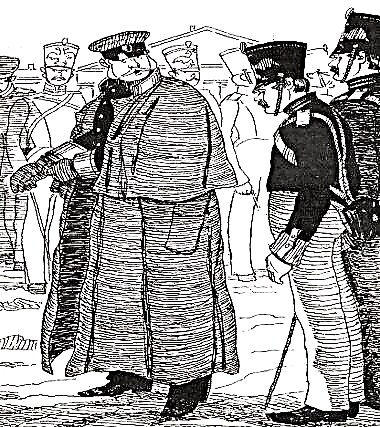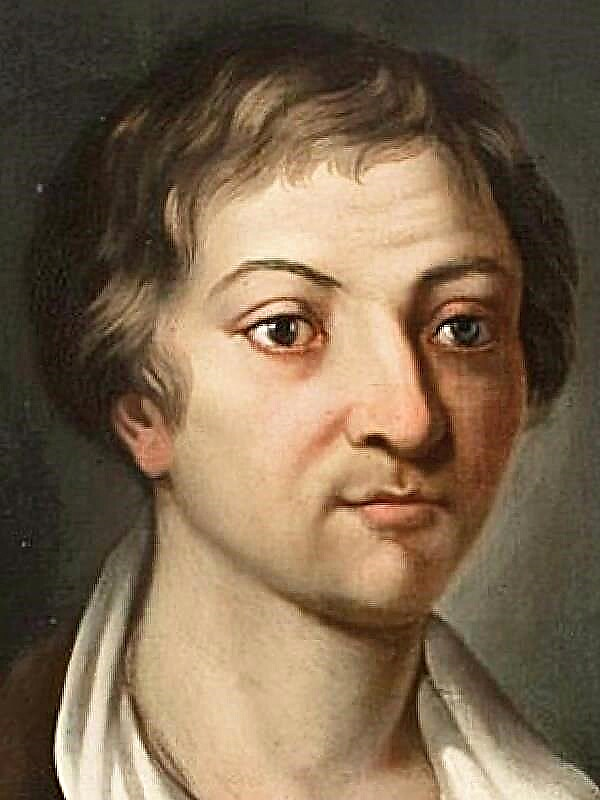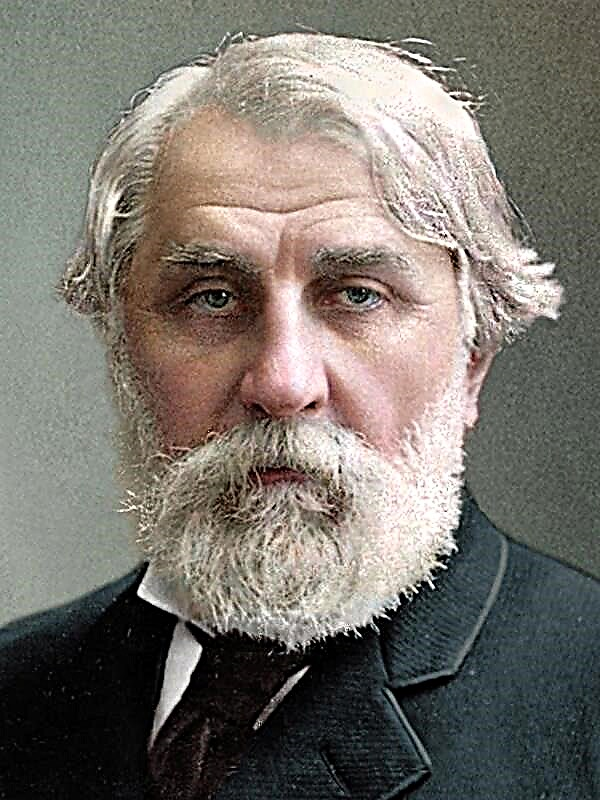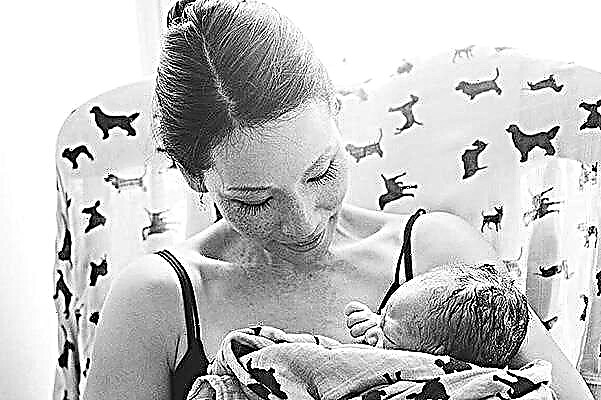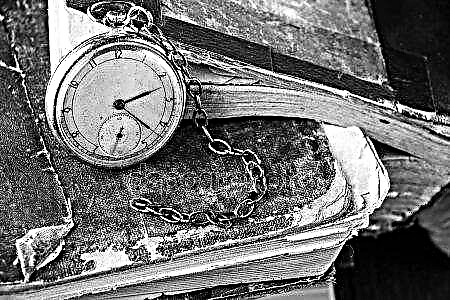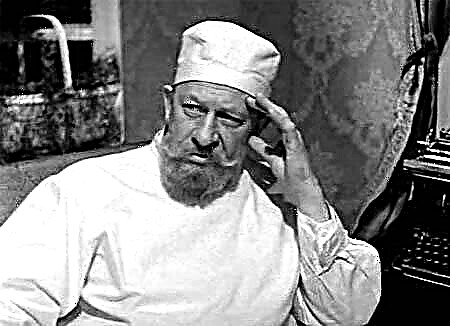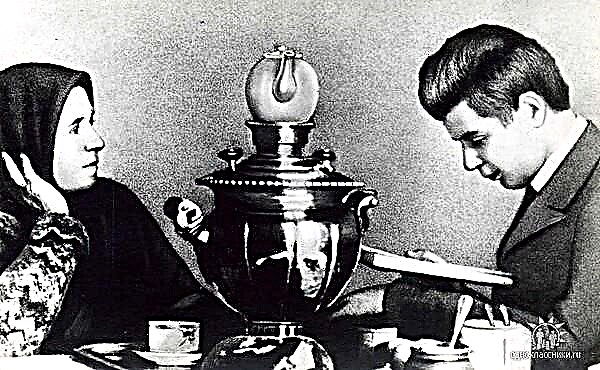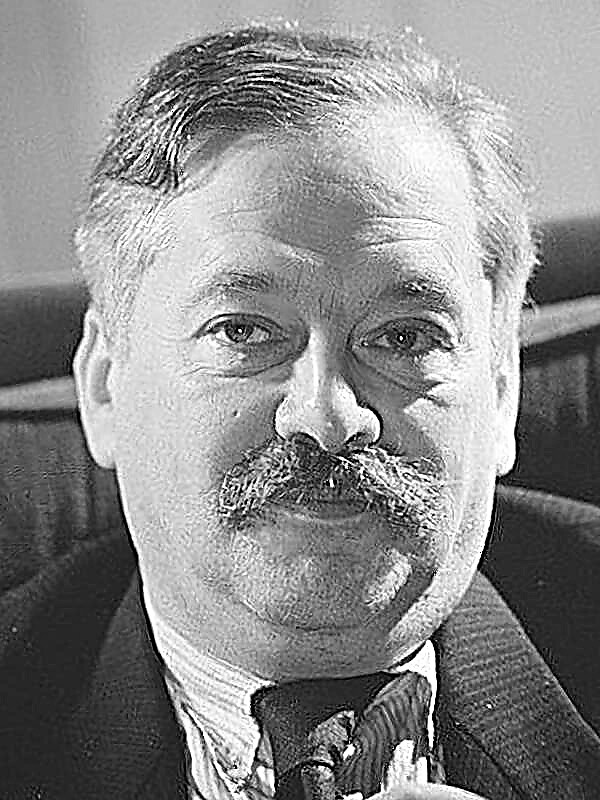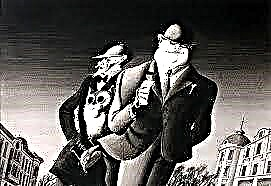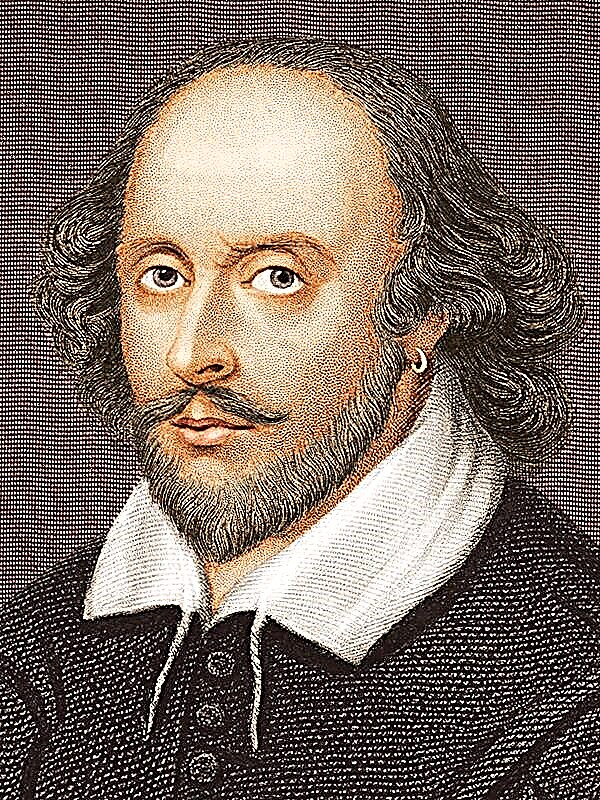Don Abbondio, the priest of a small village located in that part of Lake Como, where it turns to the south between two mountain ranges and is all rugged by ledges and bays, at sunset on November 7, 1628 returns home after a pleasant walk. He is ready to turn on the path leading to the village, as two sinister figures block his path. Their robe, appearance and grip - both heads are tied with a green net with a large brush, a long mustache are twisted, a pair of pistols are attached to a leather belt, a huge dagger and broadsword with a brightly polished hilt - leave no doubt about the nature of their occupation. These are the so-called braves, dashing well done, who are hired for a variety of, including very dubious, errands. With poor Don Abbondio, the soul instantly goes to heels and painfully tries to recall whether he has committed any crimes against the powerful of this world. On behalf of his master, a young and unbridled feudal lord Don Rodrigo, Bravi demands that Don Abbondio cancel the wedding scheduled for tomorrow for the local peasant boy Renzo Tramalino and his bride Lucia Mondella. The unfortunate priest is a good man and does not want anyone to harm, but does not have the lion's courage at all and therefore avoids any clashes, since they touched him, he always takes the side of the strongest, making it clear to the weak that he is not his enemy in his soul. Tormented by remorse and even more acute bouts of fear, he spends a painful night. The next morning, Renzo Tramalino, dressed up to the smithereens, comes to him - a twenty-year-old boy, left without parents from a young age, has a small piece of land and is engaged in spinning silk, which gives him a modest but steady income. He is burning with impatience to connect with his beloved Lucia and wants to discuss with Don Abbondio the latest details of the upcoming wedding ceremony. But the priest meets the radiant groom without usual friendliness and confusedly and confusedly explains to him that the wedding cannot take place - for good reason. The wedding is postponed for a week. The talkative servant of Don Abbondio Perpetua, whom the priest had entrusted with a terrible secret the day before, cast doubt in Renzo's heart. He biases interrogation of don Abbondio, speaks with his bride and finally understands what the catch is: the impudent don Rodrigo has tender feelings for pretty Lucia. After consulting, Renzo and the mother of the bride Agnese decide that the groom should take four capons with him, go to the large village of Lecco and find there a long, skinny, bald lawyer with a red nose and a raspberry mole on his cheek, whom everyone calls Kryuchkotovom - he knows everything laws and will help to find a way out of a difficult situation.
The lawyer readily agrees, but as soon as he hears the mention of the terrible Don Rodrigo, he hurries to get rid of the unlucky client and even returns the living “fee” tied up in his legs. Lucia comes up with the idea of asking for help from the monk of the neighboring Capuchin monastery, Father Christopher, whose authority is even bowed to by the most notorious tyrants. This already elderly monk is known not only for his piety, but also for the rigorous fulfillment of two duties that he voluntarily prescribed for himself: pacification of discord and protection of the offended. Father Christopher courageously goes to the den of the beast, whom he hopes to tame with prayers or a description of the torment awaiting him in the afterlife. A stormy conversation has absolutely no effect - Don Rodrigo, his equally arrogant Milanese cousin Don Attilio and drunken guests laugh the monk and he leaves the luxurious villa, invoking curses on the head of the wicked master. The last resort remains - to get married without the consent of Don Abbondio, but in his presence. To do this, bring two witnesses. The groom says: "This is my wife," and the bride - "This is my husband." Everyone heard everything, the holy sacrament is considered to be accomplished. The main thing is to catch the priest by surprise and prevent him from fleeing. God-fearing Lucia hardly agrees to the dubious offer of her mother and Renzo. Only the threats of Renzo to kill Don Rodrigo and the appearance of gloomy figures near their house convince her. The next evening, when it was already dark, they try to fulfill their intention. The betrothed and the witnesses tricked into the priest’s house, and Renzo pronounces the words, but Don Abbondio hastily throws a tablecloth on Lucia’s head, preventing her from completing the ceremony, and desperately calls for help. There should be general confusion, alarmed by the cry of a priest, a secessionist rushes to the bell tower and strikes the largest bell. By a lucky coincidence, a frantic ringing forces a small detachment of bravie to retreat, led by the desperate thug Griso, sent by don Rodrigo to kidnap Lucia. The unfortunate betrothed and Agnese, who during the "operation" distracted the attention of the faithful servant of the priest Perpetua, flee to the monastery of Pescarenico to Father Christopher. Under cover of night, his loyal people transport the fugitives to the opposite side of the lake and take them to Monza, where Lucia takes under her protection a high-ranking nun Gertrude. Before her birth, she, the last daughter of a powerful prince, was destined for a monastic life, as well as all sisters and brothers, except for the elder one, whose father wanted to leave a huge fortune intact. Contrary to her desire and the boiling of young passions, she becomes a novice about a year before the appearance in the monastery of Lucia, to whom she immediately feels disposition.
Renzo, having said goodbye to women, goes to Milan, where he finds himself in the midst of a hunger riot, when desperate townspeople rob and smash bakeries and storm the house of the food master. Unexpectedly, Renzo becomes a national tribune and expresses peasantly sound thoughts about social structure. He stops for the night in a tavern, orders dinner and, having drunk one or two bottles of good wine, allows himself too bold judgments about the actions of the authorities. The owner of the tavern considers it his duty to warn the police about a dangerous rebel. The next morning, two police officers and a criminal officer lift him out of bed and offer to follow them. An excited crowd sets him free along the way. Fearing once again to get into an unpleasant alteration, Renzo leaves Milan and goes to the province of Bergamo (at that time the Duchy of Milan is under Spanish rule, and Bergamo belongs to the Most Serene Republic of Venice - you should cross the Addu River, and you are already abroad). Here in the village lives his cousin Bortolo, whom Renzo meets with a warm welcome and who arranges him for work in his spinning mill. On the same day, November 13, when Renzo arrives at Bortolo, a messenger arrives in Lecco with the order to arrest the fugitive criminal Lorenzo Tramalino and to send him to the shackles to Milan, where he will be brought to justice. The frantic don Rodrigo, whose longed prey slipped out of his hands, is gloating and concocting new intrigues. He craves revenge and revenge. With the help of an influential Milanese relative, a member of the Privy Council, he seeks the punishment of the obstinate father Christopher - his transfer from Pescarenico to distant Rimini. The cutthroat Griso finds out where Lucia is hiding, and Don Rodrigo is plotting her abduction from the monastery. A small predator appeals for support to a terrible powerful patron, whose name history has not preserved, so from now on he will be called Nameless.
The abduction goes extremely smoothly: Gertrude obeys the will of the villain Egidio, who once helped her escape from the monastery and has irresistible dark power over her. She sends Lucia with an assignment to a nearby monastery, taking advantage of Agnese's temporary absence. Braves grab the girl on a deserted road and take her to the gloomy castle of Bezymyanny, where they entrust the supervision of an old vixen. It would seem that everything is lost, but the unpredictable and inexplicable happens - after meeting Lucia in Bezymyanny’s soul, tired of endless atrocities, an unclear anxiety creeps in, and then all the growing anguish. A sleepless night does not bring peace, Lucia's desperate prayers and especially her words sound in her ears: “God forgives so much for one merciful deed!” The next morning, an ominous character hears the jubilant ringing of bells and learns that Cardinal Federigo Borromeo, known for his wisdom, piety and scholarship, arrived in a neighboring village. Nameless asks an audience from a high prelate who never refuses anyone mercy and comfort. A beneficial conversation brings the repentant villain a welcome purification. The miracle happened. Nameless becomes a different person and longs to atone. On behalf of the cardinal, overwhelmed by constant fears, Don Abbondio, together with Bezymyanny, goes to the castle for an unfortunate captive. Agnese reunites with her daughter, but not for long - they again have to leave. Upon learning that the cardinal is looking for a safe haven for Lucia, one noble married couple - Don Ferrante and Donna Prassede - invites the girl to settle in her Milan house. Don Rodrigo, killed by the news of the failure of such a well-planned operation, emits bile for two days, and departs for Milan on the third. Before separation, Lucia confesses to her mother that at the time of despair, she vowed to Madonna to never marry if she succeeds in avoiding the vile claims of Don Rodrigo. Nameless dismisses the braves, accomplices of his atrocities, and gives Agnese one hundred gold puddles in the dowry of Lucia. Lucia asks her mother to find Renzo and give him half the money. It takes a long time before she manages to fulfill the request.
Meanwhile, clouds are gathering over the country: to top off the famine that claimed thousands of lives, in the fall of 1629, cruel German Landsknechte mercenaries who participate in the redistribution of territories invade the Duchy of Milan from the north. Rumor has it that in their ranks there have been cases of plague. Terrified civilians hastily collect their belongings in haste, bury what they cannot carry away, and flee. Agnese, Perpetua and Don Abbondio find a hospitable refuge in the impregnable for enemies and open to all fugitives castle Bezymyanny. As soon as the danger has passed, they return to the village and see that everything is plundered and damaged. The fact that Don Abbondio buried in the garden disappeared. The plague enters Milan at the end of October 1629 and is rampant in the next, 1630. The authorities and the Sanitary Administration show criminal slowness in the fight against the epidemic. Don Rodrigo, returning one night at the end of August from another drinking party, discovers signs of an ominous disease. "Faithful" Griso sends the owner to the infirmary and takes possession of things, which becomes the reason for his death.
The plague does not pass by and Renzo. As soon as he recovered from his illness, he returned to his native village to find out what had become of his family. Don Abbondio is a little alive from the hardships and still trembles with fear. Perpetually carried away by the plague, Agnese lives with relatives in Pasturo, and Lucia - in Milan with Don Ferrant. Renzo hurries to Milan and sees desolation, despair and fear everywhere. At his knock at the window of Don Ferrante's house, an alarmed woman appears and tells him that Lucia is in the infirmary. At this moment, an excited crowd surrounds him. Shouts are heard about the mazun - the peddler of the infection. Renzo flees in panic and escapes from his pursuers by jumping onto a cart of corpses. The betrothed are finally found in the infirmary. There is Father Christopher, who with great patience and courage fulfills his pastoral duty - comforts the afflicted and gives the last communion to the dying. He frees Lucia from the vow of celibacy. Many owe him a recovery, but a terrible disease takes his own life. Gradually the plague recedes. She walked through Milan and Lombardy like a giant broom (according to Don Abbondio), which swept out the lives of the poor and rich, honest people and villains - among the last of Don Rodrigo. His possessions are transferred to another owner. Don Abbondio can now marry happy lovers with a calm soul. Young spouses settle in a village near Bergamo, and less than a year later they have a daughter, Maria. She will be followed by even more children, of both sexes - all of them, at the request of Renzo, will learn to read and write. Renzo loves to talk about how he learned to avoid trouble. Something in these stories does not satisfy Lucia. They argue, argue, and finally come to the conclusion that caution and good behavior do not help prevent trouble. But, since they collapsed, deservedly or innocently, only faith in God gives strength to overcome them, and the experience teaches how to make your life better.

